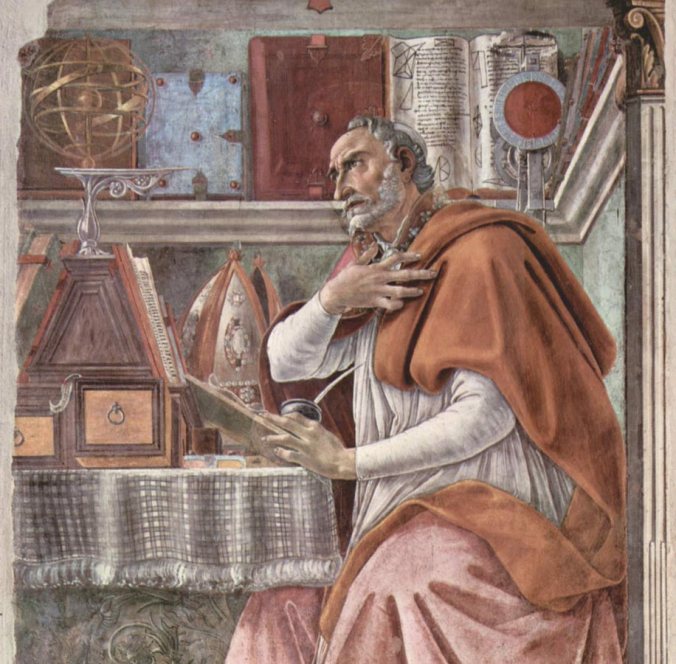When people contemplate the origins of the academic study of psychology, our attention is usually drawn to the great figures of the 19th and early 20th centuries: William James, Sigmund Freud, Wilhelm Wundt, etc. These were men of the early heady days of experimental psychology, psychoanalysis, and behaviorism. But they were not the first days when mankind decided to reflect on his or her interior life. Philosophers, mystics, poets, saints, and writers of previous eras and cultures long gone have often attempted to plumb the depths of the human mind. Their methods were quite varied – abstract reasoning, ancient physiology, and even meditation. And some merely wrote what was on their mind.
Turn Inward is my humble attempt to bring to light some of these rare individuals who dared to look beneath the surface of our superficial thoughts in search of the secrets of the mind.
I can think of no better person to start this series than the famous 4th century philosopher and saint of the early Christian Church, Augustine of Hippo.

Now I know what some of you might be thinking – what in the hell does some stodgy ancient headmaster type have to teach a sophisticated urbane person of the 21st century?
A lot actually. Because before he was the great thinker and saint, Aurelius Augustinus was a wild, promiscuous, and devastatingly intelligent youth who was born in a North African backwater of the Roman Empire. Cocky and Curious, Augustine wanted to take the ancient world by storm and make a name for himself.
In other words, I would argue that Augustine of Hippo had a lot of what we might call today as “life experience.” On top of that, he had an expansive understanding of his own psychology.
It is for this reason when readers pick up a copy of his Confessions, many can’t help but remark how….modern…he sounds. In fact, his Confessions may very well be the first time in Western literature when a writer decided to expose his actual thoughts to his readers. Let me emphasize that point – not an argument, not an abstraction, not a treatise – but his thoughts and reflections on his life. Furthermore, he’s able to extrapolate certain experiences to some rather universal emotions and feelings we all undergo at some point in our lives.
So that is my “sales pitch” to those who were unsure of sticking around for this series.
It is my intention in the next couple of blog posts to examine some of the psychological insights buried in Augustine’s Confessions – which serves as a kind of spiritual autobiography of the man.
We may also lightly touch on diverse topics such as Platonic philosophy, early Christian theology, and the state of the late Roman empire to fill out the backdrop of his life.
However, I believe that to us Augustine of Hippo’s major relevance comes from his status as an astute commentator of the human condition.